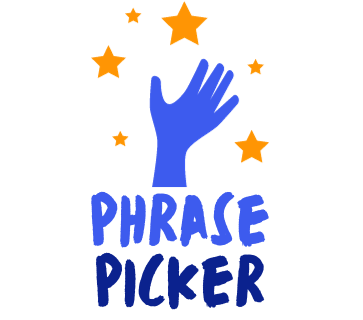Introduction
In the nuanced world of communication, certain phrases carry an air of cordiality and anticipation. One such phrase is ‘looking forward to meeting you’. Typically expressed in professional interactions and official settings, its charm lies not just in its politeness, but also in the sense of eagerness it radiates. This phrase has been ingrained deeply into our vocabularies, creating effortless connections on many levels. In this article, we will explore the diverse contexts in which ‘looking forward to meeting you’ is aptly used, along with introducing potential alternatives that convey the same sentiments, therefore expanding your communication repertoire with grace and style.
Key Takeaways
- The phrase ‘looking forward to meeting you’ is used to convey anticipation and excitement about a nearing social interaction, often professional engagements.
- It can be used in various contexts including emails, phone calls, and face-to-face conversations, making it a versatile addition to your communication toolkit.
- Alternative phrases that can be used to express the same sentiment include ‘eager to meet you’, ‘cannot wait to meet you’, or ‘anticipating our meeting’.
Other Ways to Say “looking forward to meeting you”
- Excited to see you soon.
- Can’t wait to meet you in person.
- Awaiting our meet-up eagerly.
- I am eagerly anticipating our meeting.
- Looking forward to the pleasure of your company.
- Thrilled about our upcoming meeting.
- Await the delight of our encounter.
- Eager to meet you face-to-face.
- Enthusiastically waiting for our gathering.
- Waiting impatiently to see you.
- Looking forward to our rendezvous.
- Just can’t wait until we meet.
- Anxiously waiting for our meeting.
- Anticipating our meeting with great pleasure.
- Can’t wait to make your acquaintance.
Anticipating Our Upcoming Meeting
The phrase ‘looking forward to meeting you’ is frequently used in both personal and professional correspondence. This casual yet respectful expression suggests anticipation and goodwill towards an impending meeting. More formal variants of this phrase can be used to convey a touch of sophistication or to uphold the dignity of a professional setting. Examples of such phrases are: ‘I am eagerly anticipating our forthcoming meeting’, or ‘I am wholeheartedly enthusiastic about our impending get-together.’ Using such formal expressions can articulate professionalism, exhibit respect for traditional business decorum, or simply add stylistic variety to your writing.
Dear Jane,
I am pleased to inform you that your application has been approved. We are excited about the potential of this collaboration. Kindly let us know a suitable time for the preliminary meeting.
I eagerly anticipate the opportunity to meet you in person.
Best Regards,
Susan
How To Answer Formal
Answering the phrase: ‘Looking forward to meeting you’ in a formal context requires a professional and respectful tone. This phrase is typically used when you are anticipating an upcoming face-to-face encounter with someone, often in a professional setting. Various formal responses can be used depending on the situation. For example, if you are responding to a prospective employer who has just scheduled an interview with you, a suitable reply might be, ‘I am also looking forward to meeting you, thank you for this opportunity‘. This demonstrates respect and appreciation for the opportunity. In a different context, such as when setting up a meeting with a business partner, a fitting response could be, ‘Thank you, I await our meeting with anticipation‘. This expresses eagerness and respect towards the upcoming encounter.
Alternatively, if the interaction is even more formal or you desire to convey extreme professionalism, one might opt for the phrase, ‘Thank you. I anticipate our upcoming meeting with great interest‘. The key is to maintain a balance of enthusiasm and professionalism, without sounding overly eager or informal. Remember, the tone of your response is equally important as your choice of words.
- ‘Thank you for your email. I am looking forward to our meeting as well.’
- ‘I gratefully acknowledge your invitation and am keenly looking forward to our meeting.’
- ‘Thank you. I too, am excited about our upcoming meeting.’
- ‘Much obliged for your consideration. I eagerly anticipate our meeting.’
Dear John,
I received your message and appreciate your interest in our meeting. I am equally looking forward to our scheduled encounter.
Thank you for your time and consideration, and I hope our meeting will be both engaging and productive.
Best Regards,
Jane Doe
Can’t Wait to Meet You
When you want to express the sentiment ‘looking forward to meeting you’ in a more relaxed, informal context, you might opt for variants such as ‘Can’t wait to meet you’, ‘Eager to see you’, or ‘Excited for our meetup’. These phrases project a friendlier, more approachable tone, making them ideal for casual conversations or familiar relationships. Opting for these informal expressions can facilitate a deeper connection with the other party, laying the foundation for a more comfortable and relaxed encounter.
Can’t wait to see you soon!
How To Answer Informally
Often in casual or informal settings, a response to the phrase ‘Looking forward to meeting you’ would carry a lighter tone. Unlike formal situations that require strict adherence to courteous and reserved language norms, the casual setting allows for a more expressive and free-flowing discourse. When you’re responding to someone who’s expressed their anticipation for meeting you, phrases like ‘The feeling’s mutual’, ‘Same here’ and ‘Can’t wait to catch up’ can be used to communicate a similar sense of anticipation without the formal undertones.
It’s pertinent to note that the context of your interaction would largely determine your choice of response. If it’s a close friend you haven’t seen in a while, saying ‘Looking forward to it too, mate’ conveys a sense of camaraderie and shared excitement. If it’s an acquaintance you’re meeting on a social night out, something like ‘Can’t wait, it’s gonna be fun!’ could work perfectly well. In these informal scenarios, your tone of voice, more than the exact words, communicate your anticipation.
- ‘Looking forward to it too, mate’
- ‘The feeling’s mutual’
- ‘Same here’
- ‘Can’t wait to catch up’
- ‘Can’t wait, it’s gonna be fun!’
Hey there,
Thanks for your email. I got your message and I’m really excited about meeting you too. Let’s make it a great one!
See you soon,
Your name
Is It Correct to Say “looking forward to meeting you”?
When it comes to the phrase: looking forward to meeting you, you might be wondering if it’s a correct and acceptable phrase to use. In fact, it is completely correct to say looking forward to meeting you. This phrase is used in formal contexts such as business communications and formal letters. It is also quite common in informal settings.
Far from being considered rude, saying looking forward to meeting you portrays a level of enthusiasm and anticipation. It signals to the other person that you are eager to meet them and that you value their time. It’s a way of displaying respect and provides a warm, welcoming sentiment. Therefore, this phrase is not only correct, but it’s also quite polite.
However, like all English phrases, it needs to be used appropriately. You would not use this phrase in every conversation as this could come off as insincere or overused. It’s particularly relevant when planning future meetings or indicating anticipation for an upcoming event.
We hope that through this understanding, you will be able to determine when it is appropriate to use the phrase: looking forward to meeting you. May this article propel your confidence in using this phrase in the right contexts, demonstrating an engaging and respectful way of communication.



